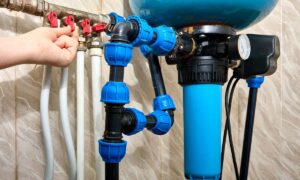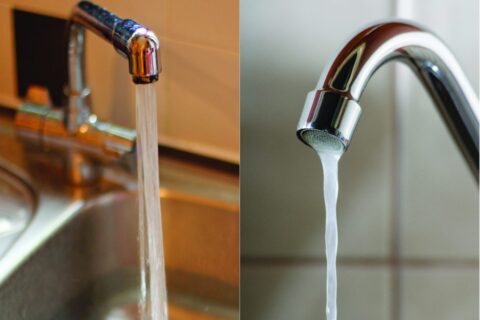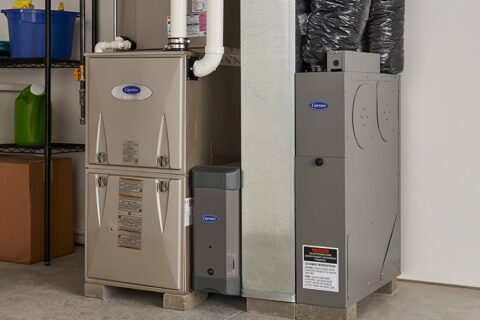How to Choose the Right Filtration System for Well Water in Colorado
Key Takeaways
-
For example, in Colorado, well water typically tests positive for lead, nitrates, and pesticides. These contaminants can have dangerous long-term health effects, making filtration essential. Regular testing is crucial to detect these contaminants and avoid health risks.
-
Colorado’s distinct topography and farming methods play a large role in the state’s water quality issues. Seasonal changes and precipitation can contribute to increased levels of groundwater contamination as well.
-
Each type of filtration system is designed to address different water quality concerns. These are sediment filters, carbon filtration, reverse osmosis, UV purification, and iron filtration. Whatever the case may be, choosing the right system entirely depends on the contaminants that are under question.
-
Start with professional, accurate water testing to identify the known and unknown contaminants lurking in your well water. Regular testing, once a year, or more frequently after extreme environmental events, will help you make sure your water is safe.
-
Household water consumption needs, required maintenance, and long-term cost savings should all figure into the decision on which filtration system is right for your home. Consider not just the system’s initial investment but its long-term maintenance costs.
-
Maintaining your filtration system regularly ensures optimal performance, better water taste, and longer plumbing lifespan, while reducing health risks for your family.
Selecting the best possible filtration system for Colorado well water requires close consideration. Your area’s unique water quality will factor heavily into what you decide on. Well water is known for its unique taste and odor due to minerals, sediments, and other impurities that can impact its quality.
With Colorado’s rich and varied geology, the content of the water can change drastically. This variability makes it important that a filtration system is equipped to meet individual needs. Water testing, what type of filtration you’d need, and how much maintenance is required are some key factors that help you make an informed decision.
From sediment filters to reverse osmosis systems, each solution offers advantages based on well water composition and specific household requirements. Knowing all of this will help you take the right steps to provide clean, safe water for daily use. This includes drinking and cooking, as well as washing dishes and doing laundry.
Why Well Water Needs Filtration
For Americans who depend on private wells, making sure they have safe drinking water should be the highest priority. Fifteen percent of Americans, including many Coloradans who live in the state’s rural areas, rely on well water to drink, bathe, and raise their families.
Concerns about contaminants arise because, unlike municipal water, private wells aren’t regulated. This means the responsibility for ensuring clean, safe water is in the hands of the homeowner. That’s why filtration is so critical! When left untreated, well water can carry a host of harmful contaminants that can seriously affect your health and ruin your home systems.
Common Contaminants in Colorado Well Water
Colorado’s well water is frequently contaminated with harmful substances such as lead, nitrates, pesticides, and microplastics. Lead can leach from older plumbing, while agricultural runoff tends to introduce nitrates and pesticides into our groundwater.
Microplastics, which are becoming more prevalent in Colorado, originate from landfills, where they leach into our soil and water supply. Routine testing—minimum once a year for private wells—is imperative to detect these harmful pollutants as soon as possible.
Long-term exposure to these toxins can lead to substantial health problems. For instance, heavy metals can lead to kidney damage and pesticides have been linked to higher rates of cancer.
Health Risks of Untreated Well Water
Untreated water poses serious risks associated with contaminants. Nitrates in drinking water can lead to methemoglobinemia, a potentially fatal disorder affecting the oxygen carrying capacity of blood in infants.
Long-term exposure to arsenic or lead can cause chronic illnesses, including cardiovascular and neurological disorders. A dependable filtration system such as reverse osmosis (RO), paired with UV sterilization, can remove dangerous contaminants.
This process greatly improves the water quality and safety.
Environmental Factors Affecting Water Quality
The state’s geography and climate are contributing factors as well. Seasonal snowmelt and rainfall can flood wells with contaminants, and agriculture plays a huge role in runoff.
Testing and filtration can help deliver clean water in the face of these dangers. While natural ecosystems can assist in filtering groundwater, they cannot completely remove all risks, making human intervention imperative.
Types of Well Water Filtration Systems
Sediment Filters for Removing Debris
Sediment filters are an important part of the well water filtration system to remove sand, silt, dirt, and other particles present in well water. These filters serve as your first line of defense, keeping debris and sediment out of your plumbing system.
Sediment is often nasty, corrosive, abrasive, and can cause excessive wear on your plumbing pipes, faucets, and appliances such as washing machines and water heaters. There are different types like pleated filters for reusable options or spin-down filters made for large particles.
To maintain optimal performance, filters must be frequently cleaned or changed due to clogging.
Carbon Filters for Odor and Taste
Carbon filters are particularly effective at eliminating undesirable odor and flavor, often due to sulfur or organic compounds. They make your water safer and neutralize chlorine and other chemicals to improve the taste and quality of your drinking water.
These filters can be point-of-use under-sink, countertop, or point-of-entry whole-house systems. To keep them effective, replace the carbon filter every six months or as the product’s manufacturer suggests.
Reverse Osmosis for Heavy Metals
Reverse osmosis (RO) systems are as good as it gets for filtering heavy metals, dissolved salts, and even microplastics from your water. This system utilizes a semipermeable membrane to filter out contaminants from the water.
RO is especially useful in areas with high mineral content, such as Colorado. Key components of a reverse osmosis system include pre-filters, a membrane, and a storage tank.
With regular maintenance, like membrane and filter replacement, your system will keep performing at optimal levels.

UV Purifiers for Bacteria and Viruses
UV purifiers provide a chemical-free treatment to remove bacteria, viruses, and iron-oxidizing microorganisms. Instead, these systems use ultraviolet light to eliminate harmful pathogens, all without changing the taste or quality of your water.
In addition, pre-filtration is typically required to remove debris that might obstruct the UV light. Adding well water UV purification to your system is an excellent proactive measure for protecting your water supply.
Iron Filters for Rust and Staining
Iron filters address rust, staining, and metallic tastes due to high iron content. Untreated, iron will not only leave unsightly stains on your sinks, tubs, and laundry, but will clog pipes, creating additional damage.
You have options like oxidation filters and even water softeners that can both lower iron content. Regularly test your well water for iron and other contaminants to identify the proper filtration for you.
How to Choose the Right Filtration System
1. Test Your Well Water First
The first step to learning more about your well water is to get a comprehensive test to look for harmful contaminants. These kits are an inexpensive and easy way to get started. Yet professional testing services usually provide far more precise results.
These home tests can let you know if there is iron or manganese in your water, bacteria contamination, or harmful chemicals like pesticides. In states like Colorado, arsenic and uranium are occasionally found in well water because of their geological composition. Recording these outcomes is crucial as it allows you to select a filtration system that meets your needs most effectively.
2. Identify Specific Contaminants Present
After you have your test results in hand, create a list of contaminants. Some, such as microbes or lead, are more dangerous to human health and should be addressed first.
Look for filtration systems that are specifically built to address these contaminants. For example, an RO system is most effective at removing heavy metals but a UV filter will effectively kill bacteria. Talking to local water quality professionals can help point you in the right direction towards systems that target common contaminants in your area.
Look for certification by the NSF or the Water Quality Association to be sure the system has met rigorous standards.
3. Assess Your Water Usage Needs
Daily water consumption will determine which type of system and size is required. A family of four would need a filtration system that treats 300 gallons a day.
This includes peak usage times, like in the busy mornings. Whole-home systems are usually the best choice for most households, because they make sure all of your faucets and appliances have filtered water coming out.
This strategy is cost-effective, more equitable, and more practical for the long haul.
4. Consider Maintenance Requirements
Maintenance requirements will differ based on the type of system you choose. Some systems you’ll need to change the filter often, others have less maintenance involved.
For instance, sediment filters should be replaced every six months, whereas carbon filters can be used for up to a year. Systems that offer user-friendly, quick-change filters make maintenance intuitive and reduce upkeep woe.
Make sure to factor in costs for replacement parts to not be caught off guard later on.
5. Evaluate Long-Term Costs and Benefits
Although initial costs may appear steep, the right filtration system pays for itself over time. Replacement bottled water costs or future household plumbing repairs from a sudden mineral buildup usually easily exceed the savings from a lower-quality system.
High-quality materials additionally guarantee durability, making it a long-term investment. Creating a budget that considers both upfront and lifetime expenses will ensure you get the best value from the system.
Importance of Regular Well Water Testing
Protecting the safety of our well water begins with testing it regularly. Because water quality can vary over time and as a result of natural or man-made changes, routine testing is important. Regular checks help detect contaminants like bacteria, nitrates, or heavy metals early, ensuring the water remains safe for drinking and daily use.
Testing helps identify trends in water quality, which is particularly important in areas like Colorado, where conditions can vary throughout the year.
Frequency of Testing for Optimal Safety
Be sure to test your well water regularly—at least once a year—and make sure it’s safe to drink. Prioritize testing for common danger signs, such as coliform bacteria and nitrates. There are some cases where you should test more often.
In particular, after a heavy rainfall or snowmelt, agricultural runoff can pollute the water supply with toxic chemicals like nitrates or pesticides. This compounds the risk of contamination immensely. In the same vein, seasonal variations can result in increased nitrate concentrations—most significantly in agricultural communities.
Proactive testing helps catch potential issues before they become health hazards. Having a regular schedule puts you in control and underlines the importance of staying ahead of any potential issues.
Testing Methods and Tools Available
Homeowners should know they have plenty of options for testing well water. Many DIY testing kits are relatively inexpensive and simple to use, providing the ability to check basic parameters, such as pH or hardness, at a moment’s notice.
These tests provide a detailed breakdown of what’s in your water. They test for heavy metals and microbial contaminants to provide you with a true understanding of your water’s safety.
What to test for
Regularly test for pH, lead, arsenic, and E. Coli. Understanding the results is crucial, as it guides decisions on treatment systems or repairs.
Indicators That Signal Immediate Testing
New smells or tastes or a change in water clarity, for instance, can be signs of contamination. Flooding, nearby construction, or plumbing repairs can all raise the risk of pollutants entering your well, making urgent testing needed.
Monitoring for any obvious signs of degradation allows for quick restoration efforts that will prevent any negative impact on drinking water quality.
Benefits of Maintaining a Filtration System
Improved Health and Safety for Families
Keeping your filtration system up-to-date will help ensure that you’re not exposing yourself to dangerous constituents such as microplastics, forever chemicals, and metals. These contaminants, which are all too commonly found in Colorado’s well water, can lead to serious health problems when not adequately filtered out.
For families with children or older adults, safe drinking water is critical to their health and well-being. Immunocompromised individuals and children under five years old are the most vulnerable to the risks posed by waterborne diseases, which a quality filtration system can mitigate.
We know from numerous studies that access to clean water increases a child’s immune system strength. It reduces their risk of developing chronic illnesses linked with polluted water. When families make water quality a priority, they are immediately improving the safety of their home.
Prolonged Lifespan of Plumbing Systems
Filtration systems not only give you peace of mind knowing you’re drinking clean water, they protect your plumbing. Sediment and minerals in untreated well water can build up quickly.
This buildup can lead to clogged pipes, corroded fixtures and even damage to your appliances like dishwashers or water heaters. This accumulation frequently leads to expensive breakdowns or replacements.
An unmaintained filtration system is not able to provide the same level of protection. This move reduces risks and puts more money back in homeowners’ pockets over time. For each dollar you spend on filtration, you can recoup $4.33 in plumbing repair and energy expenses alone. That’s right, the system will actually pay for itself.
Better Taste and Clarity of Drinking Water
Your water will not only look clearer—filtered water tastes cleaner and fresher, too. Using advanced technologies to remove impurities that may create strong odors or metallic taste helps create a more pleasant experience when drinking water.
Families are more willing to drink filtered water than tap water, relishing its use in drinking and cooking. Regular maintenance of your filtration system means your water will always be crisp, clean, and refreshing—an excellent long-term investment for any home.
Conclusion
Choosing the right filtration system for well water in Colorado is important for the health of your family and home. A quality system will help your water taste and smell great, protect your plumbing, and provide you the peace of mind you deserve. Choosing the right one begins with knowing what your water specifically needs, which can only be determined through regular testing. From whole house sediment filters to advanced reverse osmosis systems, we have a solution for every problem.
Following a regular maintenance schedule will ensure your system is continually performing at its best. It will save you money in the long run and deliver you clean water every day. When you invest in the right filtration system, you set yourself up for fewer worries and better water quality.
Test your well water, learn about the different types of filtration systems available, and choose the one that meets your needs. Cleaner water is just a click away.
Frequently Asked Questions
Why is filtration necessary for well water in Colorado?
Iron, manganese, and sediment are common contaminants found in Colorado’s well water supply. A professional water filtration system will effectively remove these impurities, ensuring you have high quality, healthy water for your home.
What types of filtration systems work best for well water?
The right water filtration system is based on the specific contaminants in your water, including sediment filters, activated carbon filters, and reverse osmosis.
How do I choose the right filtration system for my well water?
Begin with a home water test to determine which contaminants are present. Choose the ideal water filtration system that matches your water quality needs, such as flow rate and maintenance requirements.
How often should I test my well water?
If you have a well water filtration system, test your water quality needs at least annually. If you notice any changes in taste, color, or odor, conduct more frequent water tests to ensure the effectiveness of the filtration system.
Can a filtration system improve water taste?
Sure, a home water filtration system can effectively eliminate impurities that produce bad taste and smell, such as sulfur or chlorine, improving the overall water quality needs for better taste, smell, and feel.
How do I maintain my well water filtration system?
Follow this up by replacing filters and cleaning components regularly according to the manufacturer’s recommendations. Regular maintenance of your home water filtration system takes the guesswork out and keeps your system performing at peak efficiency.
What are the long-term benefits of using a filtration system?
Cleaner, safer water from an effective filtration system protects your plumbing and appliances while reducing potential health risks and addressing specific water quality needs.


